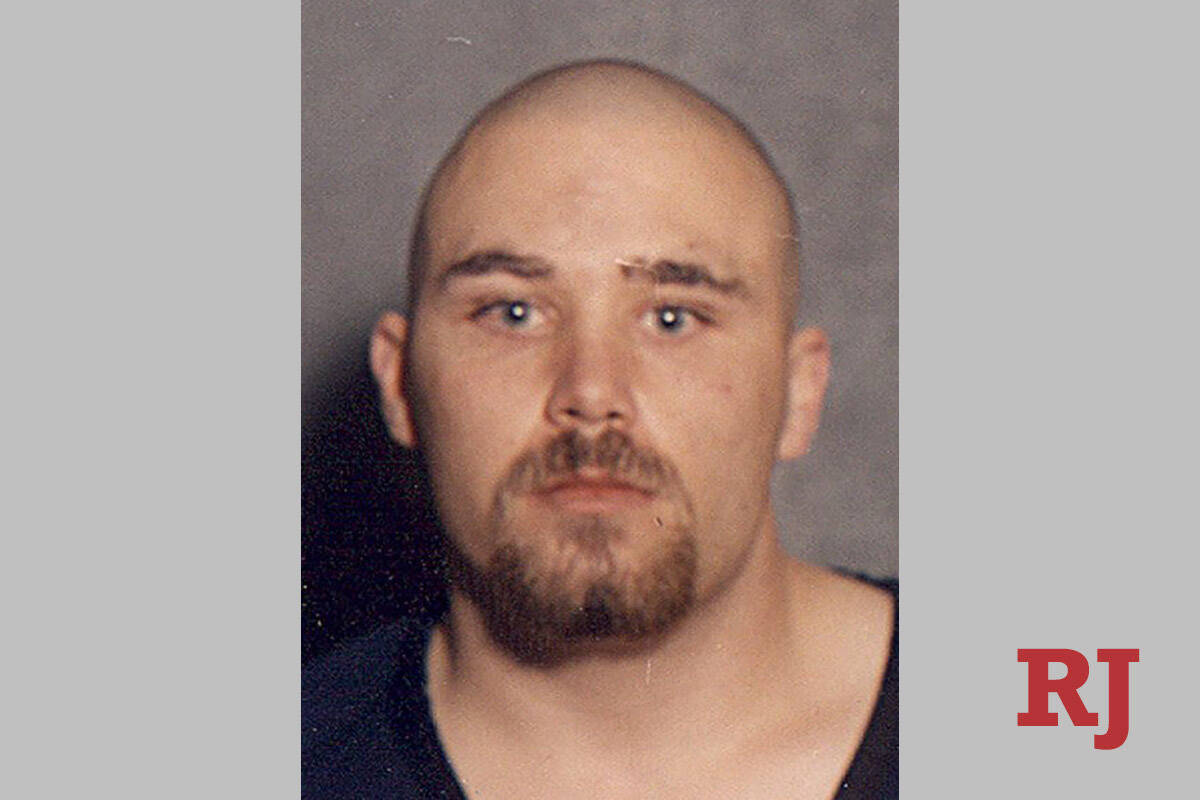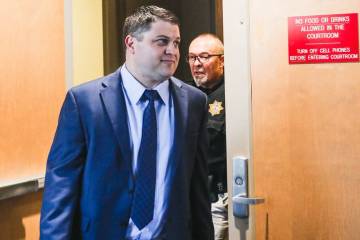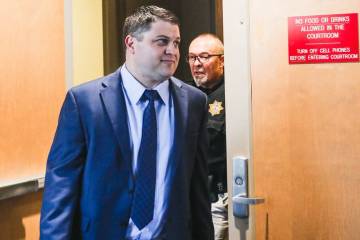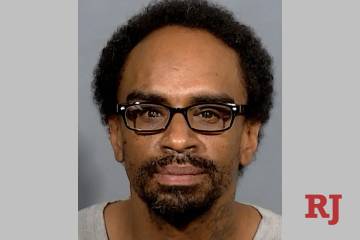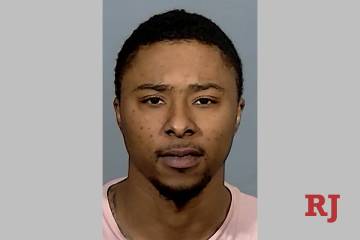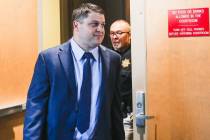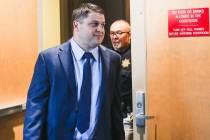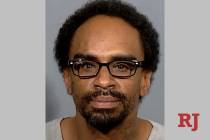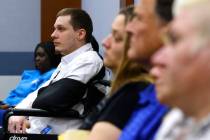Firing squad described as humane way to execute Zane Floyd
An emergency room doctor and guns expert testified in federal court Thursday regarding firing squad protocols, a method of execution that Nevada death row inmate Zane Floyd has indicated he prefers.
In court papers filed in April, Floyd’s lawyers wrote that he would prefer to be killed by a firing squad shooting him with two to three bullets. Dr. James Williams, who has studied firing squad methods in the U.S. and internationally, said the traditional firing squad method still used in Utah consists of five trained marksmen, one with a blank bullet, shooting four rounds into someone’s heart, likely causing unconsciousness within three seconds.
“I don’t believe the condemned would feel anything that any of us approximate to pain,” said Williams, who is also a competitive shooter and teaches advanced-level gun classes to police departments.
Williams testified for just over two hours during the third and final day of this week’s evidentiary hearing regarding Nevada’s proposed plan to execute Floyd.
Floyd, now 46, was sentenced to die for fatally shooting four people and gravely wounding another in a Las Vegas grocery store more than two decades ago. He also was convicted of repeatedly raping a woman before the shooting.
The hearing is expected to continue in December in front of U.S. District Judge Richard Boulware, with testimony from state experts and Department of Corrections Director Charles Daniels.
State plans use of new drug combination
Nevada plans to execute Floyd using a lethal injection of drugs that have never been combined to carry out capital punishment, experts testified this week. The drugs include ketamine, an anesthetic similar to PCP, and the painkiller fentanyl or the similar drug alfentanil.
According to court documents, the proposed protocol from the Department of Corrections indicates that the state also may use cisatracurium, which is a paralytic drug.
The state would issue the drugs in order, starting with the fentanyl or alfentanil, then the ketamine, the possible paralytic and, finally, potassium chloride or potassium acetate to induce cardiac arrest.
Dr. Mark Heath, an assistant professor of anesthesiology at Columbia University Medical Center, testified Tuesday that the combination of drugs might not render Floyd unconscious, so he could be aware, paralyzed and in “agony” while he suffocates, especially if the state uses the paralytic.
“No human being should be exposed to the terror and agony of not being able to breathe,” Heath said.
Although Floyd prefers a firing squad, his lawyers also have argued for alternative drugs, including a barbiturate such as pentobarbital, which “reliably induces and maintains a coma-like state that renders a person insensate to pain and necessarily precedes death,” Assistant Federal Public Defenders David Anthony and Brad Levenson wrote in the prior court filings.
Williams testified Thursday that his patients who recover from gunshot wounds to the chest don’t report pain in similar levels to those who were shot in the extremities.
Like being hit by a baseball bat
The doctor said he suffered a gunshot wound to his chest muscle when he was 18 and only felt a bludgeoning sensation similar to being hit by a baseball bat before the area went numb.
“I was able to drive myself to the hospital for treatment,” Williams stated.
During cross-examination, Chief Deputy Attorney General Randall Gilmer asked Williams if he was aware of botched executions in Utah, which has carried out about five firing squad executions since the 1970s.
Williams said he was aware of two botched attempts throughout the state’s long history of firing squad use: In 1879, a man persuaded prison guards to keep him unrestrained, so he briefly dodged the bullets, and in 1951, executioners did not strike the prisoner in the heart, seemingly on purpose, he said.
Gilmer attempted to show a video in court of a botched firing squad execution that took place in Guatemala, but Boulware denied the request because Williams was unfamiliar with the execution.
Levenson said that while death by firing squad is not specifically mentioned in Nevada law, the judge could rule that it is a viable option for Floyd’s execution.
Legislative approval needed
“It would just have to be approved by the Legislature,” Levenson said.
In late June, Boulware issued a stay of Floyd’s execution and prevented prosecutors from moving forward until mid-October.
Prosecutors had planned to have Floyd put to death at the end of July, but the current plan is for officials to execute him by February, Gilmer said on Wednesday.
State lawyers in July appealed Boulware’s decision to stay the execution. According to court documents filed Thursday, a panel of three judges with the 9th U.S. Circuit Court of Appeals dismissed the request, because the stay’s deadline of Oct. 25 already had passed.
The injunction addressed in the appeal questioned the timing of the state’s disclosure of the drugs planned to execute Floyd.
Boulware issued the stay less than three weeks after the state revealed the drugs, and Floyd’s lawyers argued that the state did not provide enough time to review them. However, the decision filed Thursday did not address the timing.
“The circumstances prompting these questions are not likely to recur, so the case as it has been presented to us is moot,” the decision said.
The Nevada Supreme Court also is set to rule on appeals of Floyd’s conviction, which would have to be resolved before the execution could be carried out.
If Floyd is put to death, he would be the first person executed in Nevada since 2006.
In August, Floyd’s lawyers filed a clemency petition in Clark County District Court asking that his death sentence be commuted.
The petition stated that Floyd suffered from brain damage caused by fetal alcohol spectrum disorder and post-traumatic stress disorder from his time in the military and that he endured violent abuse as a child.
Floyd’s lawyers also are challenging the intended method of execution in state court. A hearing in the case is scheduled for Dec. 9, court records show.
Contact Katelyn Newberg at knewberg@reviewjournal.com or 702-383-0240. Follow @k_newberg on Twitter.



